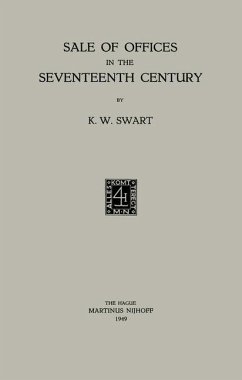The French Monarchy was the dominant power of the seventeenth century. The French armies were victorious on most battlefields and French political institutions were introduced into many countries. Among enemies as well as among friends French literature was admired and French manners were imi~ tated. This glorious period of French history had its seamy aspects, however. 1) France's military triumphs and cultural achievements did not imply a sound political and social structure. One of the most outstanding political abuses was the sale of public offices (venalite des offices), which had become an official institution of the State. Almost all offices, civil as well as military, from the lowest to the highest, were publicly sold either by the officials or by the King himself. Sale of offices is not just another form of corruption. It had serious political implications because it placed power in the hands of officials who were often incapable and unreliable. The bureaucracy, one of the fundamental institutions of the absolute monarchy, was thus deprived of much of its strength. Sale of offices also influenced the social structure of the country because it only gave to wealthy people the opportunity to hold office and excluded other classes. Further, the creation of new offices added to the burden of the taxpayer and had a disas~ trous effect on France's financial system. Finally, the invest~ ment of a large part of the national wealth in unproductive goods affected unfavorably the economic activity of the country.
Hinweis: Dieser Artikel kann nur an eine deutsche Lieferadresse ausgeliefert werden.
Hinweis: Dieser Artikel kann nur an eine deutsche Lieferadresse ausgeliefert werden.








